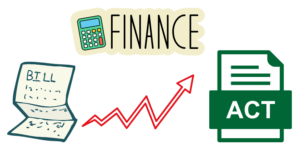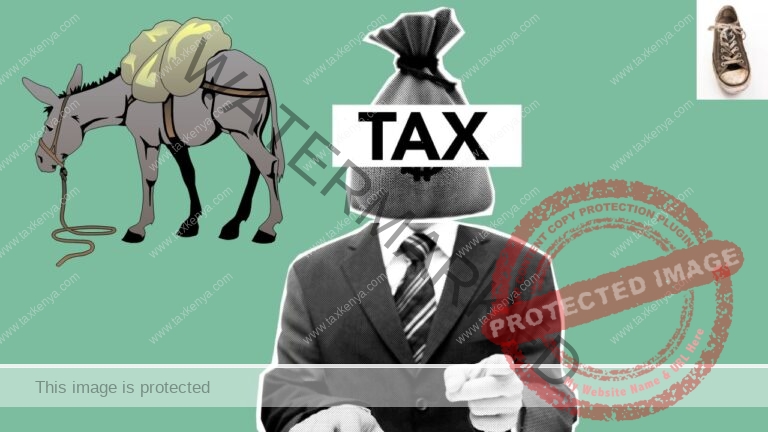Many taxpayers often use the services of digital credit providers. But who are digital credit providers or the short-form DCPs? DCPs are companies that offer loans and credit services online. They use apps and websites to make borrowing quick and easy. This means that any borrower can apply for a loan anytime and from wherever they are without going to a bank. Examples include mobile apps, online lenders, and FinTech companies that offer small loans and payday loans.
Affiliate Disclosure: This post may contain affiliate links – I may receive a small commission if you purchase through links, at no extra cost to you. Read HERE.
What Role Do They Play in the Economy?
Digital credit providers play a significant role in the economy by helping more people access financial services, boosting economic growth, and driving innovation in the financial sector. The following are some of their benefits:
a. Help More People Access Loans: One of the most significant advantages of DCPs is that they help people who might not get loans from traditional banks. The people include small business owners, self-employed individuals, and people without a credit history. DCPs help these individuals and businesses meet their financial needs by providing easy loan access.
b. Boosting Growth: DCPs contribute to economic growth by making it easier for people to get funds quickly and easily. Small businesses can use loans from DCPs to expand their operations, hire more employees, or purchase new equipment. Individuals can use these loans to handle emergencies, make important purchases, or invest in their education. These activities help stimulate the economy and create more growth opportunities.
c. Innovative Finance: DCPs bring new ideas and technology to the world of finance. They create better and more efficient ways to borrow money, such as instant loan approvals, flexible repayment options, and personalized loan products. This innovation benefits borrowers and encourages traditional financial institutions to improve their services.
There are many other roles that DCPs play. During your free time, find out some of those other roles.
Why Do Digital Credit Providers Need A Central Banks License?
The finance industry is susceptible and needs government control. Many things can happen that warrant central banks’ intervention. The following are some reasons DCPs need licensing by the central banks:
a. Protecting Consumers: Licensing ensures that DCPs follow regulations and rules. It will protect borrowers from unfair DCP practices, such as hidden costs, high fees, and interest rates. It also ensures that DCPs treat their customers fairly and transparently. Most DCPs’ motive is to make money and a lot of money in the shortest time. Hence, many have very high interest rates.
b. Keeping the Economy Stable: Central banks monitor licensed DCPs to ensure they lend money responsibly. The monitoring helps maintain stability in the financial system and prevents risky lending practices that could lead to economic crises. Risky lending practices can collapse an economy.
c. Building Trust: When a central bank licenses a DCP, it means the provider meets specific standards, and the central bank constantly monitors them. The license builds trust among consumers, who are more likely to use services from licensed providers. The consumers will also be willing.
HERE is a list of Digital Credit Providers Approved by CBK as of March 2024.
What to Look for When Borrowing from Digital Credit Providers
When considering borrowing from a digital credit provider, it is crucial to evaluate several fundamental factors to ensure you make a smart and safe choice. The availability of money from the DCPs and their marketing should not be the key factors when deciding where to borrow it.
Many borrowers have gotten into trouble because they needed to research before engaging with a DCP. Always remember the money is not for free. There are many things that you need to consider, but for this article, let us consider five factors:
Interest Rates and Fees: The interest rate is the price you pay for the convenience of getting the money. Always compare the interest rates and any extra fees from different DCPs. Many DCPs post the interest calculator on their websites, making it public information.
Unfortunately, most DCPs do not publish information about any additional fees on their websites, so you do not know how much more you will pay. Ensure you understand the total cost of the loan, including any processing fees, late payment penalties, and other charges, before you do any business with any DCP.
b. Borrowers must repay DCP loans within a certain period. We are talking about the future, and we all know that the future is uncertain. Many unexpected things happen, such as delayed payments you had expected to use to repay the DCP loan. Carefully review the loan repayment schedule. Look for flexible option terms that fit your financial situation.
Be aware of any late or missed payment penalties and ensure you can manage the repayment terms comfortably. Preferably, discuss with the DCP before you get the loan so that you understand everything beforehand. Many borrowers have gotten into deep trouble because they did not understand the consequences of failing to repay their debts to DCPs.
c. Customer Service: Don’t go on a celebration spree when you get a loan. The loan is not free. You will pay all the loan amounts back plus interest. That interest should be paid for conveniently, including customer care. Unfortunately, because of the DCP’s business model, there is little interaction with customers.
However, excellent customer service is still crucial, whether in person or online through chat. Check if the DCP offers helpful and responsive customer support. Customer service availability can make a big difference if you encounter any issues or have questions about your loan.
d. Reputation and Reviews: Research the provider’s reputation by reading customer reviews and ratings. We’re aware that some DCPs may need to have credible customer reviews. However, word on the street from real people who have done business with the DCP can help you.
Look for feedback and avoid providers with a history of complaints or regulatory issues. Crawl the internet for trusted review sites and forums, including financial ones, to get insights about the DCP. Reviews can be valuable and save you a lot of financial losses later.
e. Transparency: Some DCPs started as Shylocks, and they have not transitioned from ben their controllers to being controlled. They had the habit of springing surprises on customers. Unfortunately, transparency in the world of finance sometimes is a strange currency. Many DCPs and even banks must clarify their terms and conditions. When they provide the terms and conditions, they are in tiny print, whether printed or online.
Ensure you take the time to read the terms and conditions and fully understand the loan agreement before signing. A transparent provider will provide all necessary information upfront and answer questions.
There are many other factors that you need to consider before applying for any loan from DCPs.
What to Do When You Have a Problem with a Digital Credit Providers
As a customer, sometimes you will encounter problems you may need help to resolve. If you experience any issues with a digital credit provider, there are several steps you can take to resolve the issue:
a. Contact the Provider: Start by contacting the DCP’s customer service. Explain your problem and see if they can help resolve it. Many issues can be fixed through direct communication with the provider; you do not need to involve a third party.
b. File a Complaint: If the customer service section does not resolve your issue, you can file a formal complaint with the provider. Most reputable DCPs have a process for handling customer complaints and will take your concerns seriously.
c. Mediation: If your complaint needs to be addressed satisfactorily, seek mediation through consumer protection agencies or financial ombudspersons. These organisations can help mediate the dispute and find a fair resolution. There are many organisations to get mediation. HERE is a list to help you sort disputes.
d. Report to Regulators: If the problem persists, you can report the issue and the DCP to the central bank or the regulatory authority overseeing digital credit providers. They can investigate the matter and take action if necessary.
e. Legal Action: Legal action is an option, but consider it a last resort. You can consult a lawyer to help you understand your rights and obligations and the best course of action to pursue compensation or resolution of the issue. People typically consider legal action a last option because it can be time-consuming and costly.
Conclusion
Digital credit providers (DCPs) offer a convenient and innovative way to access loans and other credit services. They play a vital role in the economy by helping more people get financial help, boosting economic growth, and driving innovation. However, it is essential to ensure that central banks license the providers to protect consumers and maintain financial stability.
When borrowing from a DCP, evaluate interest rates, repayment terms, customer service, reputation, and transparency. If you encounter any problems, follow the steps outlined to resolve the issue effectively. By being informed and cautious, you can make smart borrowing decisions and benefit from the services offered by digital credit providers.
Thank you for reading the article. You can read an earlier article HERE and another one HERE about loans from loan Apps. Let us know your thoughts in the comments.
Let us know your thoughts – taxkenya@gmail.com




